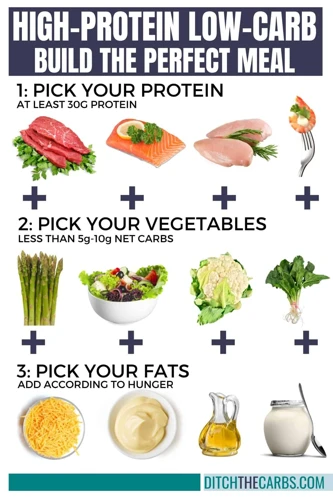As people becoming more health-conscious and environmentally aware, plant-based diets are gaining popularity. However, one common criticism of these diets is their lack of protein. Fortunately, there are plenty of high protein plant-based foods available. In this article, we will explore 10 of the best options, including nuts, seeds, legumes, whole grains, and soy products. We will also discuss the benefits of incorporating these foods into your diet and offer tips on how to do so. Get ready to discover delicious and nutritious plant-based protein sources that will keep you feeling full and energized.
Nuts and Seeds
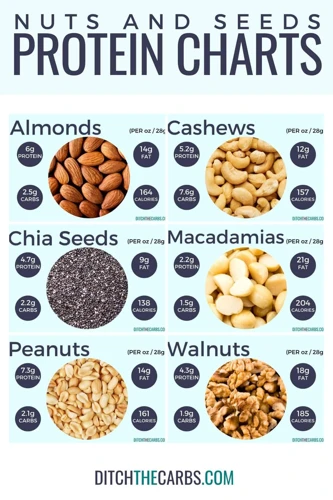
For those looking to add more plant-based protein to their diet, nuts and seeds are a fantastic option. Not only are they packed with protein, but they also provide healthy fats, fiber, and a range of essential vitamins and minerals. Almonds, chia seeds, and pumpkin seeds are just a few examples of nutrient-dense options to add to your meals and snacks. Incorporating these plant-based protein sources can provide sustained energy and promote satiety throughout the day. For some delicious ideas on incorporating these powerful little packages, check out our easy protein snacks on the go or health high protein breakfast ideas.
1. Almonds
Almonds are a delicious and healthy snack that is packed with plant-based protein. These nuts are an excellent source of nutrients, including healthy fats, fiber, vitamin E, magnesium, and calcium. They are low in carbohydrates, making them an ideal addition to any diet.
Here are some of the benefits of eating almonds:
- Almonds are a great source of protein, with a quarter cup of almonds containing around 7 grams of protein.
- They are also high in healthy fats, which help to keep you feeling full and satisfied.
- Almonds are an excellent source of vitamin E, which is a powerful antioxidant that protects your cells from damage.
- They are also rich in magnesium, which plays a vital role in over 300 essential enzymatic reactions in the body.
Including almonds in your diet is easy. You can add them to your morning oatmeal, smoothie bowls, or salads. You can also snack on them throughout the day or use them in your baking to add extra crunch and nutty flavor.
To learn more about incorporating plant-based sources of protein into your diet, check out our article on plant protein sources. If you are interested in weight loss, take a look at our meat-free protein for weight loss article. For quick and easy high-protein dinner ideas, our quick and easy high protein dinner recipes are a must-see. Protein smoothie lovers can find some inspiration in our post-workout protein smoothie recipes article. If you want to enjoy a protein-packed salad, our article on protein salads can help. Finally, if you are looking for some meal prep inspiration, take a look at our protein meal prep ideas article.
2. Chia seeds
Chia seeds are tiny black and white seeds that are packed with nutrients. They have a mild, nutty flavor and are incredibly versatile. Here is a breakdown of the nutrition that chia seeds offer per 1oz (28 grams) serving:
| Nutrient | Amount | % Daily Value* |
|---|---|---|
| Calories | 138 | – |
| Protein | 4.7 grams | 9% |
| Fat | 8.6 grams | 13% |
| Carbohydrates | 12.3 grams | 4% |
| Fiber | 10.6 grams | 42% |
| Calcium | 177 mg | 18% |
| Iron | 2.2 mg | 12% |
| Magnesium | 95 mg | 24% |
| Phosphorus | 180 mg | 18% |
| Potassium | 115 mg | 3% |
Chia seeds are one of the richest plant sources of alpha-linolenic acid (ALA), a type of omega-3 fatty acid that is essential for good health. They are also high in antioxidants, which help to protect cells from damage caused by free radicals. Chia seeds are a good source of fiber, which promotes digestive health and helps to keep you feeling full and satisfied.
These nutrient-packed seeds can be incorporated into your diet in a variety of ways. They can be sprinkled on top of yogurt or oatmeal, added to smoothies, or used as a thickener in recipes like pudding or jam. Because they absorb liquid, chia seeds can also be used to make a simple and healthy pudding by combining them with almond milk and letting the mixture sit in the fridge until it thickens.
Including chia seeds in your diet is an easy way to boost your nutrient intake and promote overall health and wellbeing.
3. Pumpkin seeds
Pumpkin seeds are a great source of protein and are also packed with nutrients like iron, magnesium and zinc. Here are some ways you can incorporate pumpkin seeds into your diet:
- Roasted pumpkin seeds: Pumpkin seeds can be roasted in the oven for a crunchy and delicious snack. To make roasted pumpkin seeds, simply rinse the seeds in water and remove any flesh or strings. Then, spread them on a baking sheet and roast in the oven at 350°F for about 10-15 minutes, or until they are golden brown.
- Pumpkin seed butter: Similar to peanut butter, pumpkin seed butter can be made by blending roasted pumpkin seeds in a food processor until they form a creamy consistency. Pumpkin seed butter can be used as a spread on toast or as a dip for fruits and vegetables.
- Pumpkin seed granola: Adding pumpkin seeds to homemade granola is a great way to enhance the protein content of your breakfast. Combine oats, nuts, seeds, and sweetener and toast them all up. Then, combine them with dried fruit and your breakfast is ready.
Incorporating pumpkin seeds into your diet is a simple and delicious way to boost your protein intake and overall nutrition. Plus, with the variety of ways to enjoy them, you can easily find a method that works for you.
Legumes
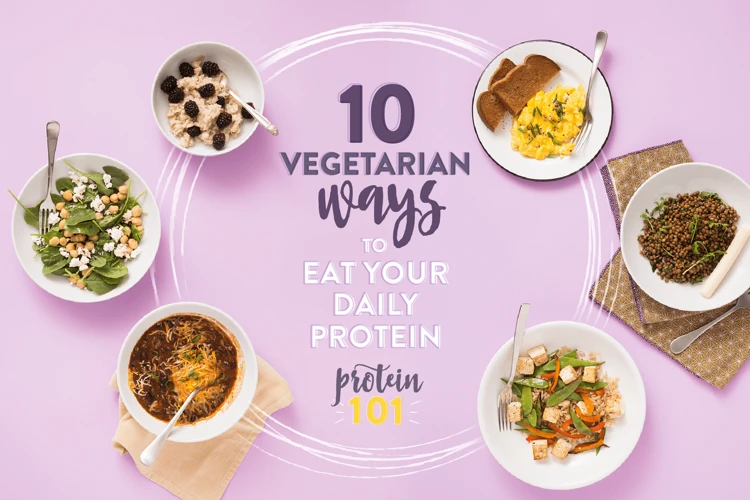
When it comes to plant-based protein, legumes are one of the most versatile and nutrient-rich options available to you. These plant-based powerhouses are a staple in many cultures and can be prepared in countless ways. From hearty stews to protein-packed salads, legumes offer a variety of delicious and satisfying options to help you meet your dietary needs. In the following sections, we’ll explore three different types of legumes that are high in protein, fiber, and other vital nutrients.
4. Lentils
Lentils are an excellent source of plant-based protein, as well as fiber, folate, iron, and potassium. They are also low in fat and calories, making them a great addition to any diet. Here are some ways to include them in your meals:
- Lentil Soup: Lentil soup is an easy and delicious way to get more lentils in your diet. You can make a big batch and freeze leftovers for a quick and healthy meal later.
- Lentil Salad: Lentils are a great addition to salads. Mix them with a variety of veggies and a simple dressing for a nutritious and filling lunch or dinner.
- Lentil Curry: Lentils work well in Indian-style curries. Saute some onions, garlic, and spices, then add lentils and tomato puree for a flavorful and satisfying dish.
- Lentil Burgers: Lentils are a great base for vegetarian burgers. Mix cooked lentils with breadcrumbs, egg, and seasonings, then form into patties and bake or grill.
- Lentil Tacos: Use cooked lentils in place of ground beef for a vegetarian twist on taco night. Top with veggies, salsa, and avocado for a tasty and healthy meal.
Including lentils in your diet can provide many benefits. For example, their high fiber content can improve digestion and keep you feeling full, while their iron content can help prevent anemia. Plus, they are an affordable and accessible source of protein for those on a budget or with limited access to animal products. Incorporating lentils into your meals is a great way to boost the nutritional content of your diet.
5. Chickpeas
Chickpeas are a popular legume that are high in protein and can be easily incorporated into many meals. These small, fiber-rich beans are a staple in Mediterranean and Middle Eastern diets, and can be cooked and seasoned in various ways.
Nutritional Value: Chickpeas are a great source of vegan protein, with one cup containing around 15 grams of protein. They also contain fiber, carbohydrates, antioxidants, vitamins, and minerals such as iron and zinc.
Health Benefits: Including chickpeas in your diet has been linked to numerous health benefits, including lowering cholesterol levels, improving blood sugar regulation, promoting healthy digestion, and reducing the risk of certain chronic diseases.
Ways to Enjoy: Chickpeas can be used in a variety of dishes, both savory and sweet. They can be cooked and added to salads, soups, stews, and curries, or mashed into a dip such as hummus. Roasted chickpeas make for a crunchy and protein-packed snack, and chickpea flour can be used to make vegan omelets and baked goods.
Here are some more ideas for incorporating chickpeas into your meals:
- Make a chickpea and vegetable stir fry
- Add them to a rice bowl with veggies and a flavorful sauce
- Puree chickpeas with tahini, lemon juice, garlic and olive oil to make hummus Dip
- Roast chickpeas with olive oil and your favorite spices for a crunchy snack
- Make vegetarian tacos or burritos with chickpeas as the protein source
Incorporating chickpeas into your diet is an easy and delicious way to increase your protein intake and reap the many health benefits associated with this nutritious legume.
6. Black beans
Black beans are a delicious and versatile high protein plant-based food that can easily be incorporated into your diet. Here are some important and interesting facts to know about black beans:
- Excellent protein source: Black beans are a great source of plant-based protein, containing approximately 7.6 grams of protein per half cup serving.
- Rich in fiber: Black beans are an excellent source of fiber, providing about 8 grams of fiber per half cup serving. Fiber is essential for maintaining digestive health and promoting feelings of fullness.
- Loaded with nutrients: Black beans are a rich source of vitamins and minerals such as iron, magnesium, and B vitamins. They also contain antioxidants that help fight inflammation in the body.
- Low in fat: Black beans are low in fat and contain no saturated fat. They are also cholesterol-free, making them a heart-healthy food.
Black beans are a versatile ingredient that can be used in a number of recipes. They can be added to soups, stews, salads, and even burgers. You can also use them to make dips, like black bean hummus, or as a filling for burritos and tacos.
Incorporating black beans into your diet is easy and delicious. You can add them to your favorite recipes or simply enjoy them as a side dish. Next time you’re at the grocery store, be sure to pick up a can or two of black beans and start enjoying their many health benefits.
Whole grains
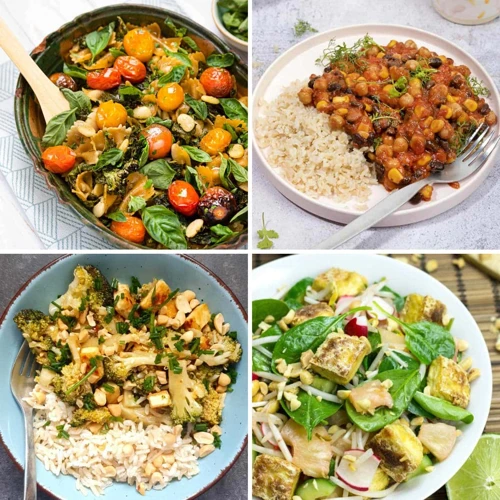
When it comes to incorporating healthy foods into our diet, whole grains are often overlooked. However, they offer an array of health benefits that make them a valuable addition to any meal. Whole grains are a rich source of protein, fiber, essential vitamins, and minerals that our body needs to function properly. They are low in fat and cholesterol, making them a perfect food for those seeking a health-conscious diet. Let’s take a closer look at some of the top whole grains you should consider adding to your diet.
7. Quinoa
Quinoa, also known as the “superfood” is a plant-based protein powerhouse that contains all the essential amino acids needed by the body. One cup of cooked quinoa contains 8 grams of protein, making it an excellent addition to a vegetarian or vegan diet. Here is a table summarizing the nutritional value of one cup of cooked quinoa:
| Nutrient | Amount |
| — | — |
| Protein | 8g |
| Carbohydrates | 39g |
| Fiber | 5g |
| Fat | 4g|
| Calories | 222 |
Quinoa is also a great source of numerous vitamins and minerals such as iron, magnesium, and vitamin B-6. It is gluten-free, easy to digest and has a low glycemic index making it an ideal food for people with celiac disease, gluten intolerance or those who want to regulate their blood sugar levels.
Quinoa is versatile and can be cooked in various ways. It can be boiled, steamed or roasted and used as a rice substitute in stir-fries, salads, and soups. It can also be mixed with vegetables, nuts, and seeds to make it into a complete meal. Quinoa can also be ground into flour to be used in baking.
Including quinoa in your diet can have numerous health benefits. It can help in weight management, reduce the risk of diabetes, heart disease and lower cholesterol levels. It can also help improve gut health due to its high fiber content and improve bone health due to its calcium and magnesium content.
Quinoa is an excellent addition to your plant-based protein diet, with its high protein and nutrient content, versatility in cooking and numerous health benefits.
8. Brown rice
Brown rice is a whole grain and an excellent source of plant-based protein. It is high in fiber and essential nutrients like magnesium, potassium, and selenium. Here are some of the key benefits of including brown rice in your diet:
- Provides Long-Lasting Energy: Brown rice is a complex carbohydrate, which means it provides a sustained release of energy over time. This can help you feel full and satisfied for longer periods, making it a great choice for meals that need to last you through the day.
- Improves Digestion: Brown rice is high in fiber, which helps promote regular bowel movements and improves digestive health. Fiber also slows down the absorption of sugar into the bloodstream, which can help prevent spikes in blood sugar levels.
- Reduces Risk of Heart Disease: Studies have shown that eating brown rice regularly can help reduce the risk of heart disease. This is because the fiber in brown rice can help lower cholesterol levels in the body, reducing the risk of plaque buildup in the arteries.
- Provides Essential Nutrients: Brown rice is rich in essential nutrients like magnesium, potassium, and selenium. These nutrients play a crucial role in maintaining good health, including promoting strong bones, reducing inflammation, and supporting immune function.
- Versatile and Easy to Prepare: Brown rice is a versatile ingredient that can be used in a variety of dishes, from savory stir-fries to sweet porridges. It is also easy to prepare and can be cooked on the stovetop or in a rice cooker.
Including brown rice in your diet can be as simple as swapping out white rice for brown or using it as a base for grain bowls or salads. Add some veggies, nuts, and seeds for a complete plant-based meal that is packed with protein and nutrients.
9. Oats
Oats are a delicious and versatile plant-based food that are high in protein and can easily be incorporated into any diet. They are a great source of complex carbohydrates and fiber, making them perfect for breakfast or as a snack throughout the day. Here is an overview of the nutritional benefits of oats.
| Nutrient | Amount per 1/2 cup serving |
|---|---|
| Protein | 5 grams |
| Fiber | 4 grams |
| Carbohydrates | 27 grams |
| Fat | 2 grams |
| Iron | 10% of the daily value |
| Magnesium | 15% of the daily value |
| Phosphorus | 22% of the daily value |
Oats can be enjoyed in many different ways, such as in oatmeal, granola, and baked goods like cookies and muffins. They also make a great addition to smoothies and can be used as a flour substitute in many recipes. Incorporating oats into your diet is a great way to boost your protein intake and add variety to your meals.
In addition to being high in protein, oats have numerous other health benefits. They have been shown to help lower cholesterol levels and reduce the risk of heart disease. Oats are also rich in antioxidants and can help to regulate blood sugar levels. They are also a great source of energy and can help to keep you feeling full and satisfied throughout the day.
Oats are a nutritious and delicious plant-based food that can easily be added to any diet. Whether you enjoy them for breakfast or as a snack, oats are a great way to increase your protein intake and improve your overall health.
Soy Products
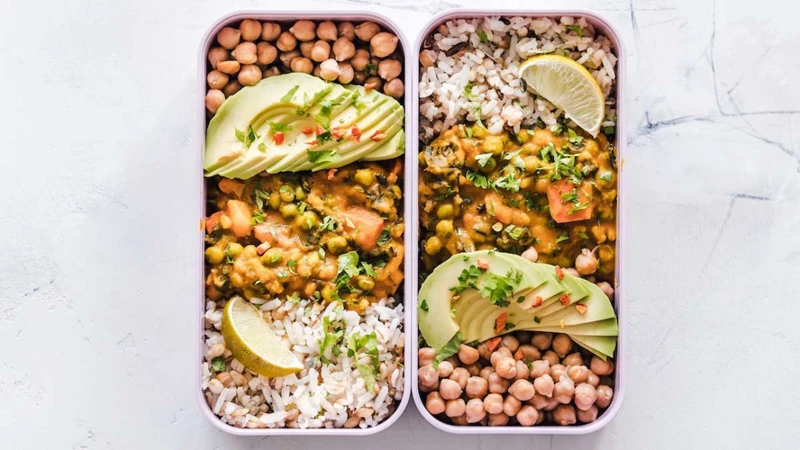
When it comes to plant-based protein sources, soy products are often at the top of the list. Rich in essential amino acids, iron, and calcium, this versatile food group has gained popularity among vegetarians and vegans alike. From tofu to tempeh, these protein-packed options offer a variety of textures and flavors to liven up your meals. Let’s explore the benefits and different ways to incorporate soy products into your diet.
10. Tofu
Tofu, also known as bean curd, is a popular high protein plant-based food that originated in China. It is made by curdling soy milk and pressing the resulting curds into soft white blocks. Tofu is a versatile protein source and a favorite among vegans and vegetarians because of its numerous health benefits.
One hundred grams of firm tofu contains approximately 8 grams of protein, making it an excellent source of plant-based protein. Firm tofu is also low in calories, fat, and carbohydrates, making it a perfect addition to any healthy diet.
Tofu is also rich in vitamins and minerals. It is an excellent source of iron, calcium, and manganese, which are essential for maintaining healthy bones. Additionally, it contains magnesium, copper, zinc, and vitamin B1.
There are different types of tofu available in the market, including soft, firm, extra firm, and silken. Silken tofu is a softer type, and it is ideal for use in smoothies, dips, sauces, and dressings. Firm and extra firm tofu are more suitable for grilling, stir-frying, or baking.
Here is a table that summarizes the nutrition of 100 grams of firm tofu:
| Nutrient | Amount |
|---|---|
| Protein | 8g |
| Calories | 76 |
| Fat | 4.8g |
| Carbohydrates | 1.9g |
| Fiber | 1g |
| Iron | 1.7mg |
| Calcium | 204mg |
| Manganese | 0.5mg |
| Magnesium | 33mg |
| Copper | 0.1mg |
| Zinc | 0.9mg |
| Vitamin B1 | 0.1mg |
Tofu can be incorporated into various dishes, such as stir-fries, soups, sandwiches, salads, and even desserts. It is a perfect replacement for meat and dairy products and can easily absorb the flavors of other ingredients in the dish.
Tofu is a healthy and versatile high protein plant-based food that is easy to incorporate into your meals. Its numerous health benefits make it an essential addition to a balanced and nutritious diet.
How to Incorporate Them into Your Diet
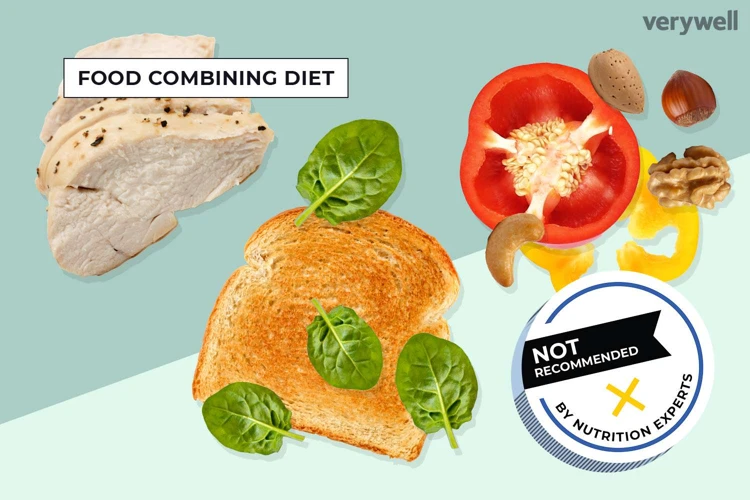
Incorporating high protein plant-based foods into your diet is easier than you might think. Here are some simple ways to include these nutritious foods in your meals:
1. Add nuts and seeds to your meals: You can sprinkle almonds, chia seeds, or pumpkin seeds over your morning bowl of oatmeal or yogurt. These nuts and seeds can also be added to salads, smoothies, or used as a topping for roasted vegetables.
2. Use legumes in your cooking: Lentils, chickpeas, and black beans are versatile ingredients that can be used in a variety of dishes, such as soups, stews, or curries. You can also add them to salads, pasta dishes or use as a meat substitute in burgers or tacos.
3. Incorporate whole grains into your meals: Quinoa, brown rice, and oats are delicious grains that can be enjoyed as a side dish or used as the base for a bowl. Quinoa can be used to make a salad, brown rice can be served with stir-fry or used as a base for a sushi roll, while oats can be cooked into a warm breakfast porridge or used to make overnight oats.
4. Try soy products: Tofu is a versatile meat alternative that can be used in stir-fries, salads, or sandwiches. Soy milk can be used in smoothies or as a dairy milk substitute in baking.
When incorporating high protein plant-based foods into your diet, it’s important to remember to diversify your food choices to ensure that you are getting a balance of all essential nutrients. Try experimenting with different recipes and ingredients to keep your meals exciting and nutritious.
By incorporating these protein-packed plant-based foods into your diet, you can enjoy the benefits of a healthy and balanced diet while also reducing your environmental impact.
Benefits of Including High Protein Plant-Based Foods in Your Diet
Including high protein plant-based foods in your diet has numerous benefits for your health and well-being. These foods are rich in essential nutrients, vitamins, and minerals that are vital for maintaining a healthy body.
Improved Digestion: High protein plant-based foods, such as lentils and quinoa, are rich in fiber, which helps regulate your digestive system. Fiber not only keeps your digestive system working properly, but it can also help lower your risk of heart disease and colorectal cancer.
Weight Management: Protein is an essential nutrient that fuels your body and helps you feel full. Eating high protein plant-based foods can help promote weight loss by keeping you feeling fuller for longer periods of time. Additionally, these foods are often lower in calories than animal-based protein sources, which can aid in weight management.
Reduced Risk of Chronic Diseases: Many chronic diseases, such as diabetes, cancer, and heart disease, are linked to a poor diet. Incorporating high protein plant-based foods into your diet can help reduce your risk of developing these diseases. The rich array of nutrients and antioxidants found in these foods can help protect your body from cellular damage.
Environmental Sustainability: High protein plant-based foods are usually more environmentally sustainable than animal-based protein sources. Raising livestock requires significant resources and contributes to greenhouse gas emissions. By incorporating more plant-based protein sources into your diet, you can help reduce your carbon footprint.
Improved Overall Health: Eating a diet rich in high protein plant-based foods can improve your overall health and well-being. These foods can help regulate your blood glucose levels, lower your cholesterol, and improve your immune system function, among other benefits.
Incorporating high protein plant-based foods into your diet can be a delicious and nutritious way to improve your health and well-being. From nuts and seeds to soy products, there are many tasty and versatile plant-based protein options to choose from.
Conclusion
After exploring these 10 high protein plant-based foods, it’s clear that there are many delicious and nutritious options for those looking to increase their protein intake without relying on animal products. Incorporating a variety of nuts and seeds, legumes, whole grains, and soy products into your diet can not only provide you with essential amino acids but also a range of other vitamins and minerals.
Moreover, switching to a plant-based diet can have numerous health benefits, including reduced risk of chronic diseases like heart disease and diabetes, improved digestion, and increased energy levels. Moreover, it can also have a positive impact on the environment by reducing greenhouse gas emissions and preserving natural resources.
So, whether you’re a vegan or simply looking to cut back on meat consumption, incorporating these high protein plant-based foods into your diet can be a tasty and healthy way to meet your body’s nutritional needs. So, start experimenting with different recipes and enjoy the benefits of a well-balanced plant-based diet!
Frequently Asked Questions
What are some high protein plant-based foods?
Some high protein plant-based foods include nuts and seeds, legumes, whole grains, and soy products.
What are the benefits of incorporating high protein plant-based foods into your diet?
Some benefits include improved muscle function, increased satiety, and a reduced risk of chronic diseases.
How much protein is recommended for a plant-based diet?
It is recommended to consume at least 0.8 grams of protein per kilogram of body weight, per day.
Can you get enough protein from a plant-based diet?
Yes, with proper planning, it is possible to meet daily protein requirements on a plant-based diet.
What is the protein content of almonds?
One ounce of almonds contains approximately 6 grams of protein.
What is the protein content of chickpeas?
One cup of chickpeas contains approximately 15 grams of protein.
What is the protein content of quinoa?
One cup of cooked quinoa contains approximately 8 grams of protein.
Is tofu a good source of protein?
Yes, tofu is a good source of protein with approximately 10 grams of protein per half cup.
How can you incorporate high protein plant-based foods into your meals?
You can add nuts and seeds to your salads or smoothie bowls, incorporate legumes into your soups, stews, or salads, use whole grains in your stir-frys or as a side dish, and use tofu in stir-frys, salads, or as a meat substitute in dishes.
Can high protein plant-based foods help with weight loss?
Yes, incorporating high protein plant-based foods into your diet can increase feelings of fullness and thus aid in weight loss efforts.

